Iran vows to use all tools in response to Israel’s attack
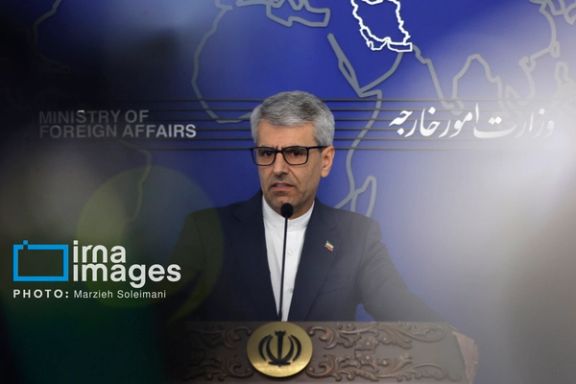
Iranian Foreign Ministry spokesperson Esmail Baghaei said Monday that the nature of Iran's response will be proportional to that of Israel's Saturday attack.

Iranian Foreign Ministry spokesperson Esmail Baghaei said Monday that the nature of Iran's response will be proportional to that of Israel's Saturday attack.
Speaking at a weekly televised news conference, Baghaei said: "(Iran) will use all available tools to deliver a definite and effective response to the Zionist regime (Israel)".
"The nature of our response will depend on the nature of the attack," he said without elaborating.
Iran previously played down Israel's air attack on Saturday, saying it caused only limited damage, with Supreme Leader Ali Khamenei not calling for retaliation during his first speech after the attack.
He said on Sunday that Iranian officials should determine how best to demonstrate Iran's power to Israel, adding that the Israeli attack should "neither be downplayed nor exaggerated".
Scores of Israeli jets completed three waves of strikes before dawn on Saturday against missile factories and other sites near Tehran and in western Iran, Israel's military said.
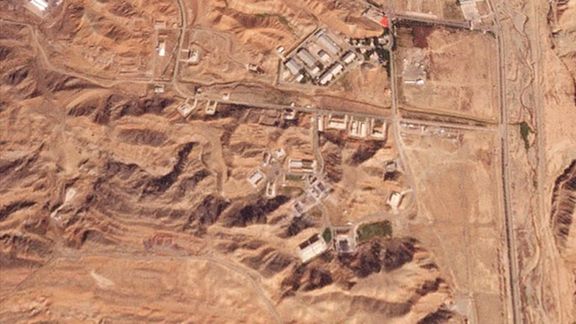
The heavily armed arch-enemies have engaged in a cycle of retaliatory moves against each other for months, with Saturday's strike coming after an Iranian missile barrage on October 1, much of which Israel said was downed by its air defences.
Iran backs Hezbollah, which is engaged in heavy fighting with Israeli forces in Lebanon, and also the Palestinian militant group Hamas, which is battling Israel in the Gaza Strip.
Baghaei noted that Iran has supported all international processes against Israel, such as those at the International Court of Justice and the International Criminal Court, saying, "We believe these processes should continue without interruption."
Also on Monday, the commander of Iran's Revolutionary Guards (IRGC), Hossein Salami, warned Israel of severe and unimaginable consequences for the attack.
In a message commemorating those killed in the recent attack, Salami said that Israeli attacks were thwarted by the country's air defense systems.
Echoing the words of Khamenei, Salami said that the attack indicated a miscalculation on Israel's part.
The Israeli air force conducted the strikes across various Iranian sites early on Saturday, with Netanyahu explaining that the operation’s purpose was to prevent Iran from advancing missile technology aimed at Israel.
The Israeli military said three waves of Israeli jets struck missile factories and other sites near Tehran and in western Iran early on Saturday in retaliation for Tehran's October 1 barrage of more than 200 ballistic missiles against Israel.
Israeli F-35 fighters entered Iran's airspace for the first time in during the Saturday raids. The New York Times and Axios, citing sources, reported that Israel targeted advanced Russian-made S-300 air defense batteries in Iran. "Four S-300 air defense batteries that were in strategic locations and protected Tehran and nuclear and energy facilities in Iran were also attacked."
Playing down the damage, Iran’s military said the Israeli warplanes used "very light warheads" to strike border radar systems in the provinces of Ilam, Khuzestan and around Tehran.




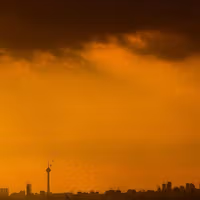


Israel’s retaliatory airstrikes on Iran this weekend caused “significant damage,” despite US President Joe Biden urging restraint and vetoing numerous potential targets, a security expert said.
Farzin Nadimi, a security analyst and a senior fellow at the Washington Institute, told Iran International that Israel’s four-hour bombardment achieved a "very significant result”, in spite of Washington urging the Jewish state to moderate its response to nearly 200 ballistic missiles fired at Israel this month.
Sites including a former nuclear testing site closed down in 2003 and military facilities were hit in the barrage.
He said the attack should not be overestimated, however. "Had Israel intended to target Iran's air defense, including its command-and-control centers, it would have to carry out a more complex, prolonged, and riskier operation."
According to Nadimi, some of those more risky targets are located "under mountains and underground," adding that attacking them is not possible solely with air-launched ballistic missiles.
Reuters reported that the attack came after weeks of the Biden administration tempering the nature of Israel’s response to an attack which many feared would see a regional war erupt.
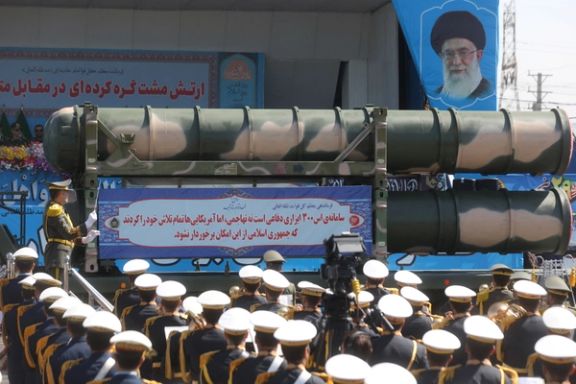
Fearing a major flare-up between the longtime foes, the US President, Joe Biden, and the administration, have been in regular contact with Israeli officials to keep the retaliation “proportional”.
A senior US official told Iran International that the US “does not approve targets, nor do we want to take that responsibility”, however, as the region sits on the edge of an all-out war, Washington has been critical in tempering Israel’s response.
Reuters reported that just hours after Iran’s massive missile barrage, the administration sent an urgent message to Israel urging them to take a breath, and make a calculated response to the two consecutive attacks which sent the entire nation into bomb shelters.
Citing current and former US officials, Reuters reported that the US had done its utmost to influence the nature of the response, making clear it would not support strikes on Iran’s nuclear facilities.
While Israel destroyed key Iranian air defenses and missile production facilities, weakening Iran's military, the attack avoided Iran's sensitive nuclear sites and energy infrastructure, meeting Biden's two top demands.
"US pressure was critically important," said Jonathan Panikoff, a former deputy U.S. national intelligence officer for the Middle East, speaking to Reuters.
"Israeli decision-making would have been far different had the Biden administration not taken measures to push Israel not to strike nuclear or energy sites,” he added.
The Israeli strikes, in addition to targeting air defense sites, hit missile production facilities across Iran.
Commercially available satellite imagery revealed significant damage at the Parchin military complex, one the most expansive and secretive Iranian missile production facilities.
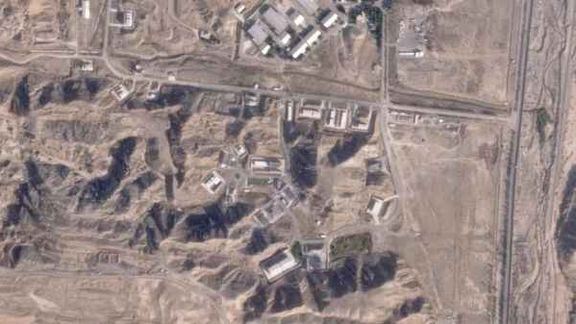
Some of the targets at the missile facilities were sophisticated mixing machines used to make solid fuel for advanced ballistic missiles, such as those that Tehran has used to attack Israel directly.
The Institute for the Study of War assessed that “Iran will likely need months or possibly a year or more to acquire new mixing equipment.”
“The Israel Defense Forces (IDF) inflicted serious damage to the Iranian integrated air defense network during its strikes on Iran on October 25,” its analysis said.
Israeli Prime Minister Benjamin Netanyahu has denied that Israel avoided striking Iranian gas and oil facilities because of US pressure.
"Israel chose in advance the attack targets according to its national interests and not according to American dictates," he said.
President Biden was quick to say that the US supported Israel’s right to defend itself and make clear he supported a “proportionate” retaliation, but made clear he would not stand behind a global war triggering attack on Iran’s nuclear sites.
"In the hours after that attack, we promised serious consequences for Iran," according to one senior Biden administration official speaking to Reuters.
US Defense Secretary Lloyd Austin held around a dozen calls with his Israeli counterpart, Yoav Gallant, since this month’s attack, the two having a strong relationship which has been key since the outbreak of the Gaza war, triggered by Iran-backed Hamas.
"We knew they were getting ready to do something, and he was pushing for it to be proportional," one US official told Reuters of Austin's conversations with Gallant.
The US Secretary of State Antony Blinken was a key player in shoring up global support for Israel’s right to defend itself, with both Western and Arab allies alike, explaining that Israel would have to respond but assuring them that Washington was working to calibrate it.
Iran’s second barrage this year was also significant. Jeffrey Lewis, a non-proliferation expert at the Middlebury Institute of International Studies, said that analysis of satellite imagery showed at least 30 impacts at Israel's Nevatim Airbase alone.
It has raised questions as to whether Israel was trying to conserve dwindling air defenses or simply thought that the hardened facility would be less expensive to repair than to repel each projectile fired by Iran, Lewis told Reuters.
"Israel may have decided that the stockpiles were running low or that interceptors were just too expensive to use on ballistic missiles," Lewis said.
One US official told Reuters that Iran’s nuclear and oil sites were on the list of potential targets, but to counter this, Washington worked to impose oil sanctions targeting Iran's so-called "Ghost Fleet" to offer an alternative measure to the Israelis who wanted to damage Iran's oil revenues with a kinetic strike.
The United States had worked to bolster Israel's air defenses ahead of its Saturday strike on Iran including a rare US deployment of the Terminal High Altitude Area Defense system, or THAAD, to Israel along with about 100 US soldiers to operate it.
But it came on the condition of knowing the plans beforehand, according to Reuters, hashed out in a call between Israeli Prime Minister Benjamin Netanyahu and Biden on October 9, in which a general plan was shared.
The US also shored up support from Europe which levied more sanctions on Iran Air, and showing the world that US had Israel's back were other key elements of this "package" of alternative measures, while trying to avert an all-out war.
Since the October ballistic missile bombardment, the US military also carried out a strike against the Iran-aligned Houthis in Yemen with long-range B-2 stealth bombers, another message to show it was working against Tehran.
As the threat of an Iranian response looms large, US support continues, with Israel playing ball with its most powerful and needed ally. ”If Iran chooses to respond once again, we will be ready, and there will be consequences for Iran once again. However, we do not want to see that happen," the senior Biden administration official told Reuters.
Mike Turner, a Republican congressman who chairs the House Intelligence Committee recently told Fox News, "They've limited the ability for Israel to really impact Iran and its ability to continue to threaten Israel."
Aaron David Miller, a senior fellow at the Carnegie Endowment for International Peace, said the approach may not be the same should Donald Trump win the upcoming elections.
"If Trump wins this election, I think that the Israelis will perhaps even look for opportunities in the months ahead, now that they've demonstrated that they can get away with dismantling Iran's air defense systems and essentially doing a good deal of damage," Miller said.
Since October 7 last year, when Hamas, designated a terror group in countries including the US and UK, attacked Israel, Iran’s militias around the region have risen up in support of the Gaza-based militia.
Israel has endured attacks from Yemen’s Houthis, Lebanon’s Hezbollah, and militias in Iraq, the West Bank, and Syria, in addition to direct attacks from Tehran.
Iran’s state broadcaster (IRIB) sparked criticism by downplaying Israel’s overnight strikes on Iranian military targets Saturday while encouraging further escalation of the conflict.
In a program aired Saturday, the presenter mockingly challenged Israel to join Iran’s bonfire night, asserting that the firecrackers used by Iranian youth during the annual Charshanbeh Souri festival are far louder than Israel’s attack on Tehran that day.
“What if there’s another strike in response in case of an Iranian counterattack, turning the situation into a game of ping-pong," the conservative publication Asr-e Iran addressed the state broadcaster in an article. "What if [Israel] becomes more emboldened after the US election? Can we still call it a ‘firecracker game’ then?”
The article argued that Israel had never conducted an operation of this scale against the Islamic Republic and was openly taking responsibility for the action.
Israel is widely known for conducting numerous clandestine operations in Iran, including explosions at military and nuclear facilities over the years and the assassination of a Hamas leader, often without officially acknowledging responsibility.
Iran's state broadcaster is run by ultra-hardliners, many of whom advocate a tougher stance against Israel. They have also been pushing for a change in Iran's defense doctrine, meaning to start building a nuclear bomb.
In his first response to the Israeli attack on Sunday, Iran's Supreme Leader Ali Khamenei refrained from an outright call for retaliation and delegated the decision to unspecified authorities. He said the strikes' impact should neither be exaggerated nor downplayed.
Before his reaction, the state broadcaster had several guests who did exactly that. Hardline politician and former diplomat Mohammad-Javad Larijani appeared on a program and called Israeli strikes scandalous due to its lack of impact.
In another program aired shortly after the strikes, the presenter spoke emphatically about Iran’s response to Israel’s attack, as though it had already been decided.
"A few revolutionary-looking presenters and fake celebrities created by IRIB...claim that Iran's response to Israel’s insolence is certain," Mostafa Faghihi, editor of a major conservative website, wrote on X. "Doesn’t this country have a military command or Supreme National Security Council?"
Israeli fighter jets entered Iranian airspace Saturday in a large-scale operation targeting critical military sites, CNN reported on Sunday, one day after Iran International reported Israeli F-35s had entered Iran's airspace for the first time and bombed targets near Tehran.
The CNN report cited one former and one current Israeli official saying the Israeli warplanes breached Iranian airspace as part of the airstrikes on Iran early Saturday.
While around 100 jets were involved in the mission, only some entered Iranian airspace, the report said.
Iran International was the first media outlet which reported that Israeli jets flew over Tehran, targeting sites in the region. Social media users in Tehran also reported hearing loud sounds, believed to be the jets in action.
Hours after the Israeli airstrikes, the General Staff of Iran’s Armed Forces said that Israeli aircraft used airspace controlled by the US military in Iraq to launch several long-range air-launched missiles.
The Iranian military's statement added that Israel's strikes resulted in "limited and minimal damage" thanks to the "timely performance of the country’s air defenses," with "a few radar systems damaged, some of which were immediately repaired, while others are currently under repair."
However, satellite images from Planet Labs and another commercial provider, analyzed by military experts, reveal extensive damage to key Iranian sites, underscoring the significant impact of Israel’s operation.
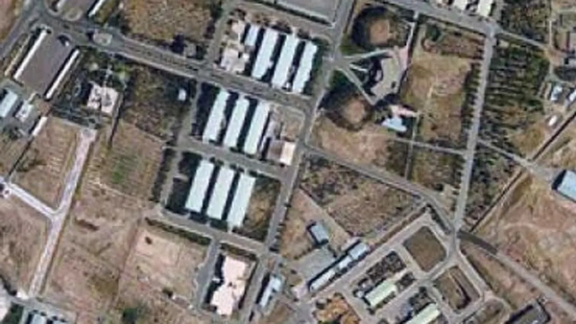
The targets include missile production facilities, missile fuel mixing plants, and sites related to nuclear weapons development. Key sites affected include the Taleqan nuclear facility near Jajrood Dam, three missile motor production buildings, the Parchin military complex, and two buildings in the Khojir complex outside Tehran.
Ali Khamenei, Supreme Leader of the Islamic Republic, responded to the attack on Sunday, saying, “Israel’s aggression two nights ago should neither be exaggerated nor underestimated; Israel’s miscalculation must be corrected, and the strength, resolve, and innovation of the Iranian people and the country’s youth should be made clear to them.”
“It is up to the officials to determine how to convey the power and resolve of the nation to Israel and to carry out what is in the best interest of this nation and country,” Khamenei added.
President Masoud Pezeshkian called the operation an act of aggression and accused the US of provoking Israel. Pezeshkian said that “Iran does not seek war” but promised a “fitting response to Israel’s actions.” He added that Western powers had previously assured Tehran of peace in return for restraint but said “these promises were entirely false.”
Foreign Minister Abbas Araghchi similarly said on Sunday that "Iran will not leave the Israeli aggression unanswered," relaying the statement to his Omani counterpart in a call, according to Iran’s Foreign Ministry.
Iranian media on Sunday confirmed the death of a civilian named Allahverdi Rahimpour who had been injured in the strikes, raising the death toll to five. Conflicting reports described him as either a contractor company's security guard or a civilian unaffiliated with the military. Previously confirmed fatalities included four members of Iran’s army: Sajjad Mansouri, Mehdi Naghavi, Hamzeh Jahandideh, and Mohammad Mehdi Shahrokhi-Far, two of whom worked for Iran's missile production units.
Prime Minister Benjamin Netanyahu asserted on Sunday that Israeli airstrikes over the weekend damaged Iran’s missile production and defense capabilities, affirming the operation’s success in achieving its objectives.
IDF Chief of Staff Herzi Halevi also said in a Saturday assessment that Israel only showed some of its abilities.
“We have the ability to do much more. We hit strategic systems in Iran… and we will see how things develop now. We are ready for all scenarios on all fronts. Our message is a very clear message, and it is connected to the things that have happened across the Middle East in recent months. We know how to reach and hit any threat, in any place, at any time,” Halevi noted.
Israel’s public broadcaster Kann News reported, citing a knowledgeable source, that “the US estimates that Iran is still able to respond to the Israeli airstrikes with the same magnitude as its Oct. 1 attack, that is, launch hundreds of ballistic missiles against Israel.” However, the report noted that the US assessment suggests that the damage from the Israeli strikes on Iran’s missile production capacity may impact the scale and nature of Iran's response.
Prime Minister Benjamin Netanyahu confirmed that Israeli airstrikes over the weekend damaged Iran’s missile production and defense capabilities, affirming its success in achieving its goals.
"The air force attacked throughout Iran. We hit hard Iran's defense capabilities and its ability to produce missiles that are aimed at us," Netanyahu said in a speech on Sunday.
"The attack in Iran was precise and powerful, and it achieved all its objectives," he added. Emphasizing that Israel’s war is not against the Iranian people, but with the Islamic Republic.
Following Netanyahu’s announcement, Iranian media reported the official death toll from Israel's operation had risen to five, with Allahverdi Rahimpour, identified by state-run Mehr News as a civilian, confirmed as the latest casualty.
Contradicting this, Sabereen News, associated with the IRGC, reported Rahimpour worked as a security guard for a contracting company. Earlier casualties were all identified as members of Iran’s traditional military - as distinct from the IRGC - two of them working for missile production units. However, the Revolutionary Guard have been silent about their potential casualties.
The Israeli air force conducted the strikes across various Iranian sites early on Saturday, with Netanyahu explaining that the operation’s purpose was to prevent Iran from advancing missile technology aimed at Israel.
Defense Minister Yoav Gallant, who briefed US Defense Secretary Lloyd Austin on the results of Israel's action, shared initial assessments of the operation’s success in targeting missile manufacturing facilities, aerial capabilities, and surface-to-air missile arrays.
"Minister Gallant also discussed the strategic opportunities that have risen as a result of operational achievements, in both the northern and southern arenas," added a statement by Gallant’s office on Sunday.
In response, Iran's President Masoud Pezeshkian said that Tehran would “defend the Iranian nation's rights and give an appropriate response to Israel's aggression.” Iran’s Foreign Minister Abbas Araghchi condemned Israel's actions in a letter to the United Nations Security Council, describing the strikes as a significant threat to international stability and calling for a Security Council meeting. Diplomats confirmed that the UNSC is expected to discuss the situation on Monday, according to Reuters.
At the UN, Israel’s Ambassador Danny Danon dismissed Iran’s complaint, calling it an attempt to divert attention from Israel’s right to self-defense. "As we have stated time and time again, we have the right and duty to defend ourselves and will use all the means at our disposal to protect the citizens of Israel," Danon said in a statement.
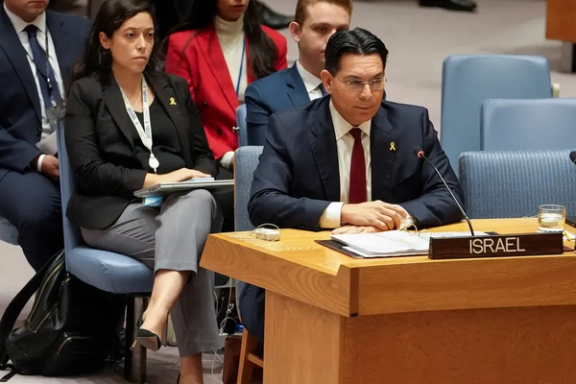
Israel's Saturday airstrikes on Iran dismantled air-defense systems protecting key infrastructure, including major oil and petrochemical refineries, a large gas field, and a significant southern port, according to reports from three Iranian and three senior Israeli defense officials cited by The New York Times on Sunday.
Targets included air defenses at the Bandar Imam Khomeini petrochemical complex in Khuzestan Province, the adjoining Bandar Imam Khomeini economic port, and the Abadan oil refinery. Additional systems were reportedly struck in Ilam Province, covering the Tange Bijar gas field refinery, the officials stated.
Before Netanyahu’s declaration of success, some Iranian politicians pledged retaliation and called for UN intervention. As both nations exchange diplomatic and military signals, the UN Security Council prepares for an emergency session to address the unfolding crisis. However Iran's Supreme Leader Ali Khamenei in a speech on Sunday avoided calling for retaliation, saying the government will study the situation and do what is best for the country.
Satellite imagery has shown Israel struck nuclear testing sites in its weekend air attacks on Iran, in addition to air defense systems, perhaps opening the way for future raids if threatened by Tehran.
Iran’s president, Masoud Pezashkian, wrote to the UN on Sunday warning that Tehran has the right to respond to the attacks while countries including the US, UK and France, said the cycle of tit-for-tat strikes must now end.
Images from satellite firm Planet Labs showed that in the four-hour attack overnight Saturday, a military base in Parchin near Tehran, where nuclear tests were allegedly conducted in the past, was damaged.
While Israel had been warned by its biggest ally, the US, not to strike Iran’s nuclear sites, Parchin was marked by Iran as military, not nuclear, allowing them to evade the veto. It was also one of the sites which had been banned from inspections by the UN’s nuclear team.
The UN atomic agency, IAEA, had marked it as a site where Iran once worked on nuclear weapons. At least three buildings were hit, including solid-propellant facilities for missiles.

David Albright, a former UN weapons inspector who heads the Institute for Science and International Security research group, and Decker Eveleth, an associate research analyst at CNA, a Washington think tank, told Reuters that as well as Parchin, Israel struck Khojir, which according to Eveleth, is a sprawling missile production site near Tehran.
In posts on X, Albright said commercial satellite imagery showed that Israel hit a building in Parchin called Taleghan 2 that was used for testing activities during the Amad Plan, Iran's defunct nuclear weapons development program shuttered in 2003.
Albright, head of the Institute for Science and International Security research group, was given access to the program's files for a book after they were stolen from Tehran by Israel's Mossad intelligence agency in 2018.
On X, he said the archives revealed that Iran kept important test equipment at the site called Taleghan 2. While Iran may have removed key materials before the airstrike, he said, "even if no equipment remained inside" the building would have provided "intrinsic value" for future nuclear weapons-related activities.
Analysis from the think tank, The Institute of Science, also said that while the UN’s International Atomic Energy Agency never visited the building, not deemed a high priority site, “it is possible Iran only removed the most incriminating equipment in its clean up effort, in the high explosive test chamber,” it said in a post on X.
The non-proliferation group research explained: “If so, Israel’s alleged destruction may have destroyed valuable equipment useful in further nuclear weapons development.”
From the imagery, Taleghan 2 appears to have been destroyed, as were the other three buildings associated with rocket motor production nearby and secured separately.
The photographs also confirm that Israel attacked another base, in Hujir east of Tehran, where buildings used to mix fuel for ballistic missiles were also damaged.
It is consistent with Israel’s policy of targeting nuclear related sites without touching the sensitive facilities such as the nuclear enrichment facility, Natanz.
Jason Brodsky, from United Against Nuclear Iran, said the attacks this weekend send “a very clear message” to Iran.
“Israel is laying the groundwork to attack your oil and petrochemical refineries in the next round should you retaliate,” he wrote on X after Israel struck with great accuracy air defences around Iran’s critical energy sites. While the facilities were avoided, there were clear warnings of what could come should Iran hit back.
The sites targeted by Israel, according to the New York Times, included defenses at the Bandar Imam Khomeini petrochemical complex, in Khuzestan Province; at the major economic port Bandar Imam Khomeini, adjacent to it; and at the Abadan oil refinery.
Air-defense systems were also struck in Ilam Province, at the refinery for the gas field, called Tange Bijar, officials told the newspaper, including one from Iran’s oil ministry.
Pezeshkian’s letter to the UN Secretary General said Iran “reserves its inherent right to legal and legitimate response to these criminal attacks at the appropriate time”.
World leaders have been urging for an end to the cycle of violence.
In the early hours of Sunday morning Tehran time, US Defense Secretary Lloyd Austin warned Iran against responding to Israel’s strikes.
After speaking to Israeli Defense Minister Yoav Gallant, he wrote on X: “ I reaffirmed the United States’ ironclad commitment to Israel’s security and support for Israel's right to defend itself … and made clear that Iran should not make the mistake of responding to Israel’s strikes, which should mark the end of this exchange.”
On Saturday, British PM Keir Starker said: "I am clear that Israel has the right to defend itself against Iranian aggression. I'm equally clear that we need to avoid further regional escalation and urge all sides to show restraint. Iran should not respond.”
The Israeli military said three waves of Israeli jets struck missile factories and other sites near Tehran and in western Iran early on Saturday in retaliation for Tehran's October 1 barrage of more than 200 ballistic missiles against Israel.
Playing down the damage, Iran’s military said the Israeli warplanes used "very light warheads" to strike border radar systems in the provinces of Ilam, Khuzestan and around Tehran.